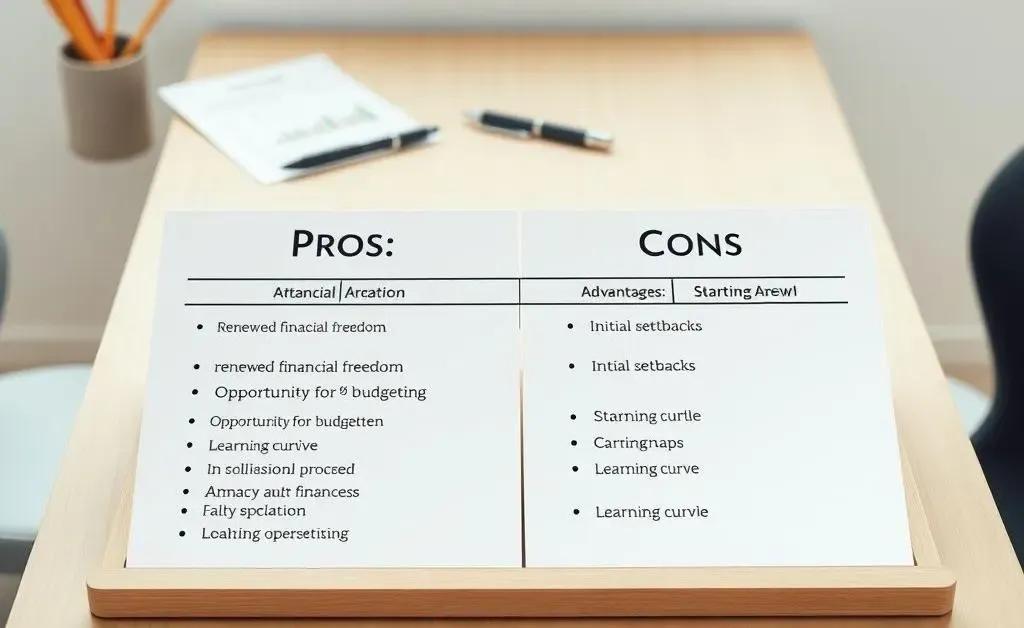Starting Fresh: Is It Time to Hit Reset on Your Finances?
Explore the pros and cons of a financial fresh start and learn if it's the right move for you.

I think about starting anew with my finances when life's complexities leave me feeling overwhelmed. Sometimes, a clean slate feels like a promising adventure, doesn't it? But is a financial fresh start really the best solution for everyone?
What Does a Financial Fresh Start Mean?
Let's break it down. Essentially, a financial fresh start involves reevaluating your financial situation and resetting your financial strategies. It's a conscious decision to reassess what's working and what's not and make a focused effort to realign your financial goals.
When to Consider a Fresh Start
Life throws unexpected challenges our way. Whether it's a job loss, mounting debt, or simply the desire for future security, a fresh start might be on your radar.
- Have existing financial plans failed?
- Feeling suffocated by bad debt or poor credit?
- Big life changes on the horizon like a new job or relocation?

Weighing the Pros and Cons
Before leaping into this new chapter, consider the advantages and potential downsides.
| Pros | Cons |
|---|---|
| Opportunity to reset bad habits | Can be time-consuming |
| Chance to build better credit | Possible initial setback |
| Align finances with new life goals | Emotional and mental toll |

Steps to a Financial Fresh Start
Feeling ready? Here's a little guide to help you start:
- Evaluate what went wrong in your previous plan.
- Create a clear and achievable budget.
- Set realistic financial goals you'll work towards.
- Start an emergency fund to cushion unexpected expenses.
- Stay committed: Regularly review and adjust your plan.

Conclusion
Starting fresh isn't for everyone, but it might be the lifeline you need right now. What's your perspective on taking bold new steps toward improving financial health? Share your story with me in the comments below!




